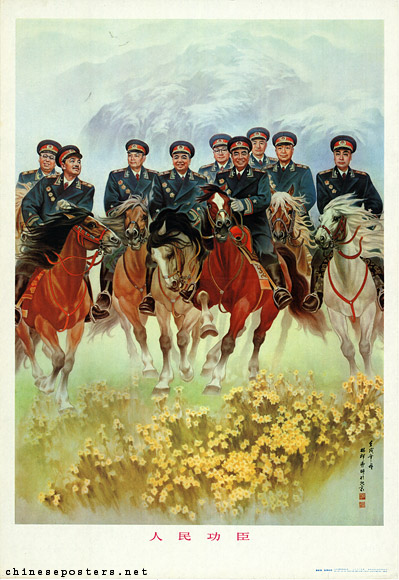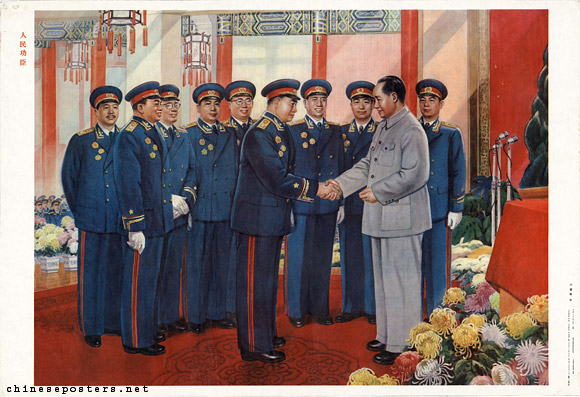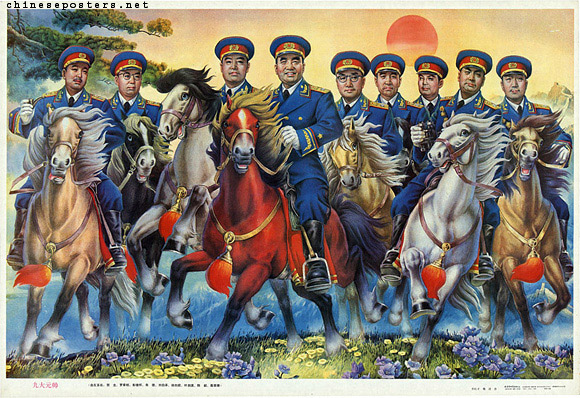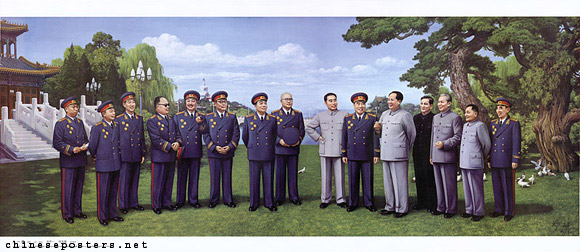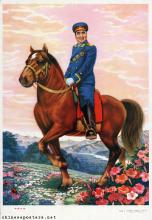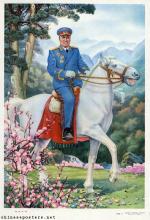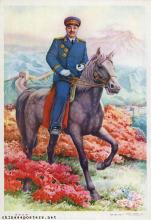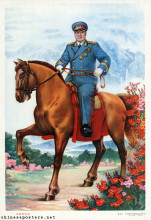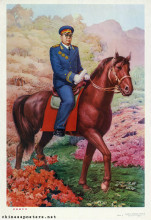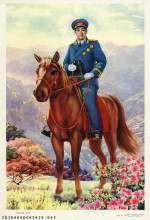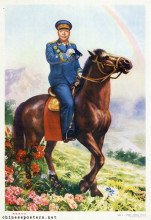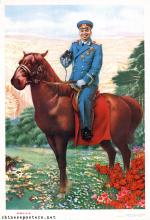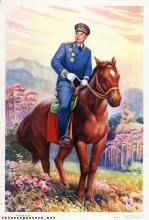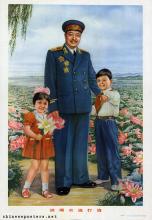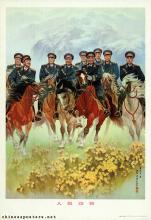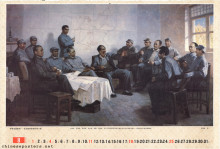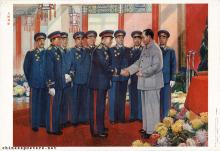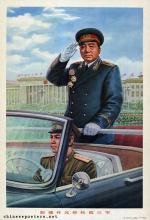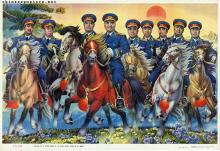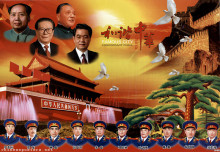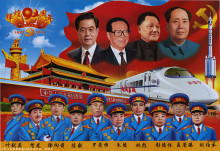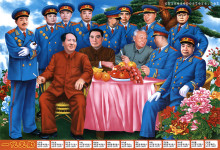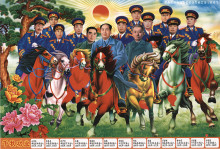In 1955, the ten former field commanders of the PLA were promoted to the rank of marshal. After 1971, official sources would only speak of the Nine Marshals: Lin Biao had been completely expunged from the records and no longer seemed to have existed, despite his many contributions.
Only after 1997, when the 80th anniversary of the founding of the PLA was commemorated, was Lin again mentioned with his brothers-in-arms and once more included in the sources. Most of the marshals had been the victims of some form of prosecution during the Cultural Revolution, with or without Lin’s active participation, but they were completely rehabilitated after 1976.
Liu Bocheng (1892-1986), also known as the "One-eyed Dragon", was the commander of the various units in which Deng Xiaoping served as political commissar.
Zhu De (1886-1976), former Commander-in-Chief of the PLA, was one of the main military supporters of the Communist Party throughout the revolution and the subsequent period of reconstruction. He died in 1976.
Ye Jianying (1897-1986) attempted to defuse the Cultural Revolution in its early stages. After Mao Zedong’s death, he was the main military force behind Hua Guofeng’s 1976 coup d’etat against Jiang Qing and the Gang of Four. In the early 1980’s, Ye became an opponent of Deng’s more unorthodox reform policies.
Peng Dehuai (1898-1974), who commanded the People’s Volunteers during the Korean War, was one of Mao’s most vocal critics during the Great Leap Forward (1958-1960). Due to these criticisms, which Mao mistakenly interpreted as part of a conspiracy against him, Peng was replaced as Minister of Defense by Lin Biao and thrown in prison. Peng was posthumously exonerated in 1978.
Luo Ronghuan (1902-1963) was active in legal circles after 1949.
Xu Xiangqian (1901-1990) protected Deng when the latter was purged in 1976. He was one of the military supporters of Hua Guofeng’s coup against the Gang of Four.
Nie Rongzhen (1899-1992) commanded the armored units of the PLA during the war against Japan. After the founding of the PRC, he became involved in the military-industrial complex. He headed the research units which were responsible for China’s successful development of nuclear arms. Nie was one of the military supporters of Hua Guofeng’s coup against the Gang of Four.
Chen Yi (1901-1972) became mayor of Shanghai after 1949, and subsequently served as Chinese Minister of Foreign Affairs.
As a former brigand and minor warlord, He Long (1896-1969) was one of the more colorful of the marshals. After the founding of the PRC, the pipe-smoking He headed the National Sports Commission. He Long was branded as an anti-Party element and purged in 1966. He died in prison.
Chen Yu (ed.), Zhonghua renmin gongheguo 36 junshijia [36 Strategists of the People's Republic of China] (Shanghai: Shanghai wenyi chubanshe, 2002) [in Chinese]
Dachang Cong, When Heroes Pass Away - The Invention of a Chinese Communist Pantheon (Lanham: University Press of America, 1997)
Liao Yiwen (ed), Tian Lun [Family Love and Friendship] (Tianjin: Tianjin jiaoyu chubanshe, 1995) [in Chinese]
Peng Dehuai, Memoirs of a Chinese Marshal - The Autobiographical Notes of Peng Dehuai (1898-1974) (Peking: Foreign Languages Press 1984)
The Liu Bocheng Memorial Hall (in Chinese)
The Ye Jianying Memorial Hall (in Chinese)
The Peng Dehuai Memorial Hall (in Chinese)
The Luo Ronghuan Memorial Hall (in Chinese)
The Xu Xiangqian Memorial Hall (in Chinese)
The Chen Yi Memorial Hall (in Chinese)
The He Long Memorial Hall (in Chinese)
